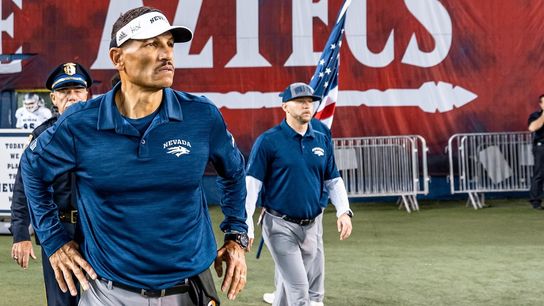After an underwhelming performance at Notre Dame (a 38-3 defeat), the reigns of the Texas offense switched hands from quarterbacks coach Shawn Watson to receivers coach Jay Norvell, the former play call at Oklahoma.
As Norvell explained at his presser yesterday, one of his first orders of business was to dramatically cut the number of plays in the game plan down.
"There's a difference between running plays and running an offense. We want an offense. We want plays that run off each other, we want to know the strengths and weaknesses of those schemes, and then we want to know what the adjustments are if they heat us up or give us problems with it. So, you can't run everything and know all of those answers."
"I think we had about half as many plays in our game plan Saturday night against Rice than we had against Notre Dame. And we probably have too much now, and probably need to cut it down even more. The bottom line is we want our players to play with speed, and we want them to think quickly, and we want their unconscious mind to react."
"We want them to think like we think. You can't just do everything and be good at everything. We don't want to be a jack-of-all-trades offense, we want to be known for something."
"Our whole goal is to have an identity. We want people to be able to watch us play, and know what we're trying to do good," he later explained.
Another area that Norvell and the rest of the offensive staff are focused on is fanatical effort, because as he put it: "It takes no talent to have great effort."
Later in the presser (at about the 14:25 mark), Norvell was asked if he feels being handed the play calling duties is an audition of sorts and he provides an interesting answer.
"If you've ever coached in the National Football League, you realize that you coach for your job every day," Norvell explained. "You would know, if you coached for Al Davis, you're coaching for your job every day. So this is nothing new to me, and I've been functioning like this for a long time...more than a couple decades probably, but a long time."
"It's coaching. If you coach at a high school, you're coaching every day for your living. Everyone wants to try to tell us the situation all the time, but believe me, everyone knows what the situation is."
